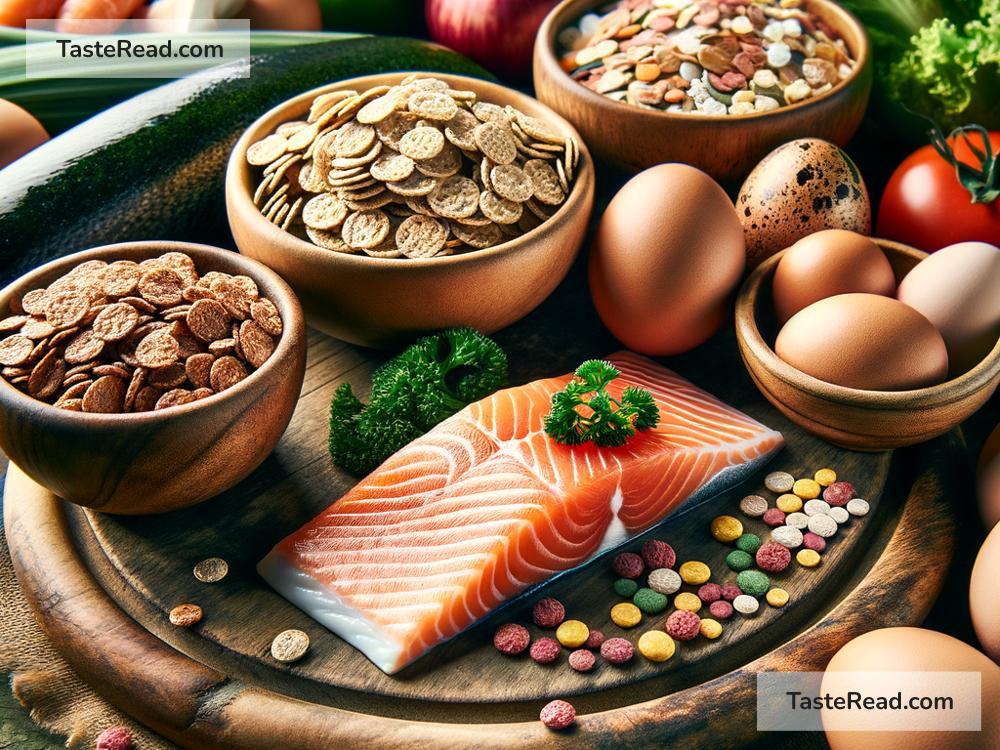The Role of Vitamin B12 in Metabolic Health: Why Your Body Needs This Key Nutrient
Have you ever wondered why health experts talk so much about vitamins? Vitamins are vital for your body to work properly, and one of the most important ones is Vitamin B12. This nutrient plays a powerful role in keeping your metabolism healthy and your energy levels high. But what does Vitamin B12 actually do, and why does it matter for your metabolic health? Let’s break it down in simple terms.
What Is Vitamin B12?
Vitamin B12, also known as cobalamin, is a water-soluble vitamin. Your body doesn’t produce it on its own, so you need to get it from foods like meat, fish, eggs, dairy, or dietary supplements. Vitamin B12 is essential for many processes in the body, but it’s most famous for its work in the areas of energy production, red blood cell formation, and nerve health.
Even though you only need small amounts of Vitamin B12, a lack of it can lead to serious health issues. This is because Vitamin B12 is a key player in your metabolic system.
What Is Metabolism?
Metabolism refers to all the chemical processes that happen in your body to keep you alive and functioning. It’s how your body breaks down food, turns calories into energy, and manages waste removal. Simply put, metabolism is like the engine of your car—it keeps everything running smoothly.
Vitamin B12 has an important role in many of these processes. Without it, your metabolism can slow down and cause problems like fatigue, poor concentration, and even weight changes.
How Does Vitamin B12 Support Metabolic Health?
The relationship between Vitamin B12 and metabolism is strong. Here are some key ways in which B12 helps your body maintain a healthy balance:
1. Energy Production
Vitamin B12 supports your body in turning the food you eat into usable energy. It helps convert proteins, carbohydrates, and fats into fuel that powers your daily activities, like walking, thinking, and even breathing. Without enough B12, your body may struggle to create this energy, leaving you feeling sluggish and tired.
2. Red Blood Cell Formation
Red blood cells carry oxygen throughout your body, serving as an energy delivery system for your muscles and organs. Vitamin B12 works with folate (another B-vitamin) to produce healthy red blood cells. If you don’t get enough B12, your red blood cell count can drop, leading to anemia, which often causes extreme fatigue and weakness.
3. Nerve Function
Your brain and nerves rely on Vitamin B12 to stay healthy. This nutrient helps build and maintain the protective coating around your nerves, called the myelin sheath. Healthy nerves are essential for communication between your brain and the rest of your body. A lack of Vitamin B12 can disrupt these signals, leading to nerve damage, tingling sensations, or even memory problems.
4. DNA Synthesis
Your body needs Vitamin B12 to make new cells and repair damaged ones. It plays a role in DNA synthesis, which is crucial for growth and overall health. This means B12 is particularly important for pregnant women, growing children, and people recovering from illness.
Symptoms of Vitamin B12 Deficiency
Even though Vitamin B12 is so important, many people don’t get enough of it. Some groups at risk for Vitamin B12 deficiency include vegetarians, vegans (since B12 mostly comes from animal products), older adults, and people with digestive issues like Crohn’s disease or celiac disease.
Symptoms of a deficiency can include:
– Feeling weak or tired all the time
– Memory problems or brain fog
– Tingling or numbness in your hands or feet
– Trouble walking or balancing
– Pale skin
– Mood changes like depression or irritability
If you think you might be low on Vitamin B12, it’s a good idea to talk to your doctor for advice.
How to Get Enough Vitamin B12
Luckily, there are plenty of ways to make sure you’re getting enough Vitamin B12:
Food Sources
The easiest way to get B12 is by eating foods rich in the vitamin. Here are some examples:
– Meat: Beef, chicken, and liver
– Fish: Salmon, tuna, and trout
– Dairy: Milk, cheese, and yogurt
– Eggs
For vegetarians or vegans, fortified foods like certain cereals or plant-based milks can provide B12.
Supplements
If your diet doesn’t provide enough Vitamin B12, supplements can be a great option. These come in tablets, capsules, or even vitamin shots prescribed by a doctor.
The Bottom Line
Vitamin B12 is a small but mighty nutrient that plays a big role in your metabolic health. It helps your body turn food into energy, supports red blood cell formation, protects your nerves, and aids in DNA synthesis. If you’re feeling extra tired or noticing strange symptoms like tingling in your hands or feet, you may not be getting enough B12.
Eating a healthy diet full of B12-rich foods is the best way to stay on top of your nutritional needs. If you think you’re at risk of a deficiency, talk to your doctor about taking a supplement. Your metabolism will thank you for giving it the boost it needs!


